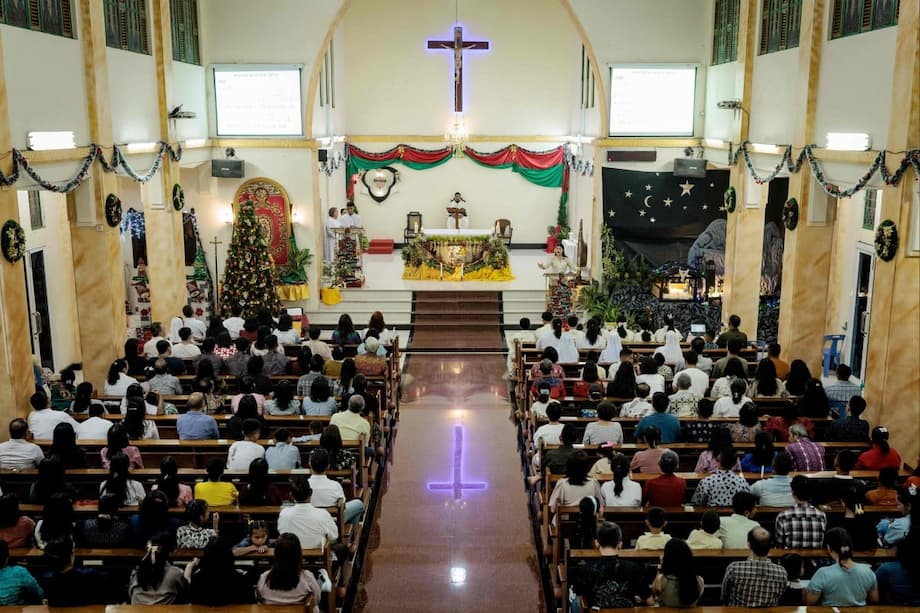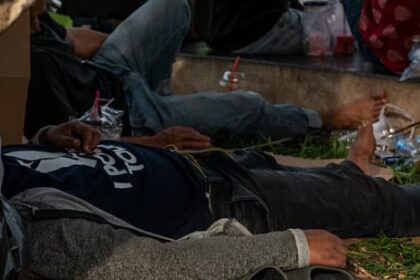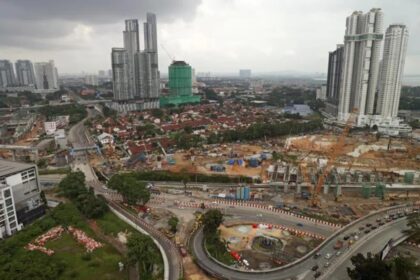Violent Mob Attack in Padang: A Stark Warning on Religious Intolerance
On July 27, 2025, a violent mob stormed a Christian prayer house in Padang, West Sumatra, Indonesia, injuring children and reigniting urgent concerns about religious intolerance in the world’s largest Muslim-majority nation. The attack, which targeted a private home used by about 30 Christian students for weekly religious study, has drawn condemnation from human rights groups, religious leaders, and civil society, all warning that systemic discrimination continues to undermine Indonesia’s constitutional promise of freedom of worship.
Videos circulating online show men kicking fences, breaking windows, and demanding the children disperse, some wielding wooden planks. According to the Legal Aid Institute (LBH) Padang, two children were injured—one, aged 13, was kicked in the back, while another, aged 11, suffered serious injuries after being struck with a wooden block, leaving the child unable to walk. Other children present were left severely traumatized, with reports of them crying, hiding, and experiencing ongoing fear.
The incident is not isolated. It follows a pattern of attacks and intimidation against Christian communities across Indonesia, raising questions about the state’s ability and willingness to protect minority rights in a climate of rising religious conservatism.
What Happened in Padang?
The attack took place in Padang Sarai village, Koto Tangah district, at a house used by the Indonesian Faithful Christian Church (GKSI) Anugerah Padang for religious education. The congregation had resorted to this makeshift arrangement because Christian teaching is not offered in local public schools. As the mob descended, police officers reportedly looked on, and the violence escalated quickly, with property damaged and children and parents left in panic.
Padang’s mayor described the incident as a “misunderstanding,” but Christian leaders and rights advocates have rejected this characterization, calling it a clear act of religious intolerance and a violation of constitutional rights. In an open letter to President Prabowo Subianto, Rev. Fu Kwet Khiong wrote:
“When children are injured during worship, it is not just a house of prayer that is under attack – it is the nation’s conscience.”
Restu Hapsari, chairperson of the Indonesian Catholic Scholars Association, echoed these concerns, stating that the scale of the damage and the trauma inflicted on children make it urgent for the government to provide coordinated responses, including restoration of the facility and psychological support for those affected.
Patterns of Violence: Not an Isolated Incident
The Padang attack is part of a disturbing trend. Just weeks earlier, a Christian youth retreat in Sukabumi, West Java, was disrupted by a mob of about 200 people who damaged property and drove out participants, again as police and soldiers looked on. In both cases, attackers justified their actions by citing the lack of official permits for worship activities—a common pretext used to target minority religious groups in Indonesia.
According to the Setara Institute for Democracy and Peace, Indonesia recorded 3,217 incidents of violations of freedom of religion and belief between 2014 and 2024. These include opposition to church construction, bans on Christian worship, and destruction of religious facilities. The 2006 Joint Ministerial Decree, which requires minority religious groups to obtain signatures from members of other faiths and multiple official permissions to build houses of worship, has been widely criticized as discriminatory and enabling of majority veto over minority rights.
Human rights groups argue that such regulations, combined with inconsistent law enforcement, foster an environment where vigilante actions and mob violence are tolerated or even tacitly encouraged. The Setara Institute stated:
“This act is unjustifiable and constitutes a criminal offense that violates both national law and the Constitution.”
Broader Context: Religious Freedom and Discrimination in Indonesia
Indonesia’s 1945 Constitution guarantees freedom of religion and worship under Articles 28 and 29. In practice, however, religious minorities—especially Christians—face a range of challenges:
- Discrimination in public life, education, and employment
- Difficulty obtaining permits for church buildings
- Violence and intimidation by radical groups
- Social pressure, especially for converts from Islam to Christianity
- Inconsistent government response to religious intolerance
The Open Doors 2025 World Watch List notes that Indonesia’s Christian communities remain vulnerable to both official and unofficial forms of discrimination and harassment. The government’s response varies by region, with some local authorities enforcing restrictive regulations while others attempt to promote tolerance. Despite constitutional guarantees, the reality for many Christians is one of uncertainty and risk.
Religious and Civil Society Leaders Demand Action
The Padang attack has galvanized religious leaders across faiths to issue a rare joint appeal to the government. At a meeting in Jakarta on August 5, representatives from Catholic, Protestant, Muslim, Hindu, Buddhist, and Confucian communities united to condemn rising acts of intolerance and urge the state to uphold constitutional protections for freedom of worship.
Father Aloysius Budi Purnomo, executive secretary of the Bishops’ Commission for Interreligious Relations, emphasized that such incidents “tarnish and damage the foundation of tolerance, harmony, brotherhood, and living together, as well as religious and cultural diversity in Indonesia.”
The joint statement delivered a five-point moral appeal:
- Freedom of religion and worship is a constitutional right
- The state must act decisively to prevent future incidents
- Law and security forces should act against perpetrators of violence and destruction of places of worship
- Governments should cooperate with interfaith forums and communities to maintain tolerance
- Religious leaders should encourage their congregations to maintain harmony and not be provoked by divisive incitement
The Catholic Bishops’ Conference, along with leaders from other faiths, insisted that places of worship must always remain spaces of peace, security, and dignity. They called for law enforcement and judicial authorities to both prevent and thoroughly investigate every act of violence, refusal, obstruction, or destruction of places used for prayer.
Government Response: Promises and Criticism
Religious Affairs Minister Nasaruddin Umar expressed regret over the Padang attack, calling it a “stain on Indonesia’s image as a tolerant nation” and pledging to investigate. However, rights advocates and opinion leaders argue that expressions of regret are not enough. The Jakarta Post editorialized:
“Hope and regret are no longer enough. The government must move beyond regret, dismantle discriminatory rules, prosecute perpetrators, and ensure safe worship for all.”
President Prabowo Subianto, who took office in 2024, faces mounting pressure to defend constitutional religious freedom unequivocally. Critics warn that silence or inaction from leadership perpetuates the perception of state indifference or complicity, further emboldening intolerant groups.
Structural Barriers: The Role of Discriminatory Laws
At the heart of Indonesia’s religious intolerance problem are structural barriers that make it difficult for minorities to practice their faith freely. The 2006 Joint Ministerial Decree on the construction of houses of worship is a key example. It requires minority groups to obtain approval from a significant number of local residents of other faiths and multiple government agencies before building a church or prayer house. This process is often manipulated by local majorities to block or delay construction indefinitely.
Permadi Arya, a prominent rights activist, points out that worship at homes does not require official permission, and Christians should be treated equally to Muslims, who use prayer rooms without permits. Yet, the lack of permits is frequently cited as justification for attacks, even when the law does not require them for private worship.
These legal and bureaucratic obstacles, combined with social pressure and the threat of violence, create a climate in which religious minorities are forced to worship in secrecy or risk attack. The result is a chilling effect on religious freedom and a sense of insecurity among minority communities.
Impact on Victims: Trauma and Fear
The human cost of religious intolerance is profound. In Padang, children who were attacked while attending Sunday School are now suffering from severe trauma. Reverend Etika Saragih of the Communion of Churches in Indonesia’s Justice and Peace Commission warned that the psychological impact on children should not be underestimated, as it can affect their future well-being and sense of belonging in society.
Similar trauma has been reported in other incidents, such as the Sukabumi youth retreat attack, where participants were forced to flee as their place of worship was vandalized. The fear and anxiety generated by these attacks extend beyond the immediate victims, affecting entire communities and undermining trust in the state’s ability to protect its citizens.
Why Is Religious Intolerance Rising?
Several factors contribute to the rise in religious intolerance in Indonesia:
- Increasing religious conservatism: Indonesian society has become more conservative in recent years, with hardline groups gaining influence and mainstreaming intolerant rhetoric.
- Weak law enforcement: Police and local authorities often fail to intervene or hold perpetrators accountable, sometimes citing the need to maintain public order or avoid offending the majority.
- Discriminatory regulations: Laws like the 2006 decree give local majorities effective veto power over minority religious activities, institutionalizing discrimination.
- Political calculations: Politicians sometimes avoid confronting intolerant groups for fear of losing support, especially in regions where religious conservatism is strong.
Human Rights Watch’s 2025 report notes that authorities have done little to stop attacks on religious minorities and that several laws place these groups at risk, including the blasphemy law and regulations on religious harmony. The report also highlights the broader decline in civil and political rights in Indonesia over the past decade, with increased interference by the armed forces in civilian affairs and weakening of legislative checks.
Interfaith Solidarity: A Glimmer of Hope?
Despite the challenges, there are signs of hope in the form of interfaith solidarity. The joint appeals by religious leaders from across Indonesia’s diverse faith communities demonstrate a shared commitment to upholding tolerance and peaceful coexistence. The Forum for Religious Harmony (FKUB), an interfaith group, has played a key role in mediating disputes and promoting dialogue at the local level.
In some cases, local officials have successfully brokered agreements to resolve conflicts over church construction or worship activities, showing that dialogue and cooperation are possible when there is political will. However, these successes remain the exception rather than the rule, and sustained national leadership is needed to address the root causes of intolerance.
In Summary
- A violent mob attack on a Christian prayer house in Padang, West Sumatra, injured children and reignited concerns about religious intolerance in Indonesia.
- The incident is part of a broader pattern of attacks and intimidation against Christian communities, often justified by discriminatory regulations on worship permits.
- Religious and civil society leaders across faiths have united to demand decisive government action to protect religious freedom and prosecute perpetrators of violence.
- Structural barriers, including the 2006 Joint Ministerial Decree, make it difficult for minorities to build houses of worship and practice their faith freely.
- Victims of religious violence, especially children, suffer lasting trauma and fear, undermining Indonesia’s reputation as a tolerant and pluralistic nation.
- Human rights groups and opinion leaders argue that expressions of regret are not enough—systemic reforms and consistent law enforcement are needed to ensure safe worship for all Indonesians.
- Interfaith solidarity offers hope, but lasting change will require national leadership and the dismantling of discriminatory laws and practices.












